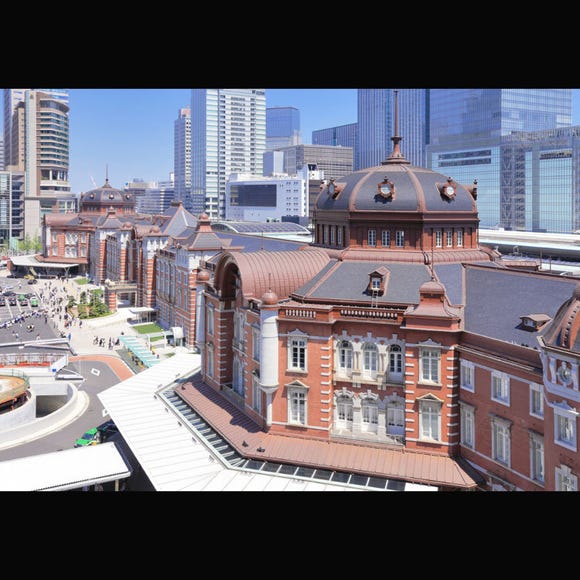
How do Japanese Feel About the 2020 Tokyo Olympics? We Asked 5 Locals To Share
- Written by: Nao
The Olympics will be held in Tokyo from July 24 to August 9, 2020. It is going to be a great excitement for the Japanese, yet at the same time some have concerns about hosting the world’s biggest sports festival in their hometown, as it's perceived to have a direct effect on their daily lifestyle during the period.
To get more of a hint as to how Japanese feel about the Tokyo Olympics, we interviewed several people from different backgrounds about what concerns them the most. (The following is their personal opinions on the games.)
No concerns - I'm a pub manager! (Ken / 24, Shop manager in a pub, Kawasaki)

"I don't really have much concern about the Olympics, as a pub manager, because we've done quite well during the Rugby World Cup, with people flooding in at all times.
When it comes to the drinking business, I'm rather looking forward to the Olympics, seeing it as a huge business boom. Whether teams lose or win, they will turn to alcohol to celebrate or drown their sorrows, and for my pub that’s fantastic news.
One more thing I’d like to mention, however, is that I wonder how many people will speak Japanese or English. I mean, the visitors during the Rugby World Cup were mainly from the English-speaking countries, so we were able to manage communication rather well.
But it will be a bit more chaotic during the Olympics as so many nationalities will be taking part, so if they all speak in their languages it will be a bit more challenging to establish understanding. So, we must come up with some ways to communicate with non-Japanese-nor-English speakers."
Many people say they are concerned about how to communicate with visitors. But they are also conscious that they can do it anyhow with a gadget such as a portable electronic translator or even with gestures because they freshly remember how they had fun with rugby supporters!
In fact, the Rugby World Cup became a legacy in terms of what gave the idea of exchanging cultures with people from abroad, which is an opportunity you can't normally expect much within Japan. And I truly hope that Tokyo 2020 will just be like that.
What to do with the newly refurbished stadiums? (Makoto / 42, Office worker, Yokosuka)

"My worry is what we will do with the newly refurbished stadiums? The government has used a large chunk of our taxes, but once the games are over will these stadiums just be forgotten and abandoned?"
Although the majority of Japanese tend to prefer newer buildings, as areas and cities are being redeveloped more people are questioning how and whether specific changes to infrastructure should be made. In the lead up to 2020, the construction of new stadiums was something of a controversial point in some circles.
On the other hand, many areas within Tokyo are experiencing a much-needed facelift, and as a whole the city is undergoing a transformation as it looks to hold visitors from all over the globe - something that may not have happened with as much urgency had the city not been chosen to host the games.
As a history lover who enjoys seeing older architecture abroad, I personally hope this questioning movement will affect our future in a positive way as we can expect more people to be eager to preserve historic buildings rather than replacing them with a modern version.
The mix of cultures and languages will be wonderful! (Yuri / 28, Teacher, Tokyo)

"There is no doubt that for young people this will be an incredible experience and a chance to really open Tokyo to the world.
The mix of cultures and languages will be wonderful, however, I am sure that with government making the announcements; ‘local people should avoid commuting during peak-hours and give priority to foreign visitors’. I'm a little concerned about how this might impact our children, and if the level of safety on public transport will be affected. But very happy to be sharing our city with everyone!"
Our society, especially in Tokyo, is very organized. For example, all passengers line up to get on a train, and a queue-jumper will be given a dirty look. As many visitors from abroad will come and see Japan, it will be a great opportunity for children to widen their views and meet people who have completely different cultures and backgrounds.
At the same time, it is perfectly understandable that parents are anxious over their child's safety, especially as many young children commute to school by themselves. I believe there are no locals nor travelers, but just adults - and hope that everyone respects each other.
How will public transport be affected? (Aiko / 36, Office worker, Tokyo)

"I'm looking forward to the games. But for me, the biggest issue I have with the Olympic games is public transportation. The train occupancy rate in Tokyo during rush-hour is over 100%, and at the peak, it reaches nearly 200% on some lines."
In fact, the public transportation issue is something all the interviewees mentioned. Tokyo's government and transportation heads have been working together with business to create ways of reducing transit crowding, such as by staggering the morning commute schedule and introducing work-from-home plans.
While it seems that these measures will indeed help reduce congestion, we will just have to wait and see. But in the meantime, it's good to know that the officials are looking to balance the needs of locals and visitors alike!
I hope visitors enjoy their experience in Japan! (Hibiki / 45, Professional, Tokyo)

"Personally, I feel anxious when I think of the reputation of Japan, which may be established after the Olympics. I'd rather we don't end up being the least appealing country for travellers in the next few decades. But it seems officials are looking to create a great experience for everyone."
Japanese are very conscious about reputation management, and especially about the image their country has abroad. During the Rugby World Cup 2019, some matches had to be canceled due to a massive typhoon - something that had caused some initial criticism over how much the canceled matches would cost.
Fortunately, in the end most fans were understanding and even sympathetic to Japan, happy that priority was put on the safety of athletes and spectators alike - even if it meant extra financial cost. Tokyo will undoubtedly take a similar track, with all the details being examined and fine-tuned so that visitors can fully enjoy their time in Japan.
Wrapping up
Generally, Japanese people lean toward being obsessed with service and perfection, and in planning events they want to ensure things go off without a hitch in order to avoid embarrassment.
While some of the concerns our respondents aired centered around how their and their families' lives will be impacted, for the most part people are thrilled and keen to show their high hospitality to all the visitors. Let's look forward to seeing them there next year!
A Japanese writer who is from a city by the sea. Started writing from the age of ten. Since then, pen and notebook have always been the best friend. Loves travelling, tea, and books.
- Area
*Prices and options mentioned are subject to change.
*Unless stated otherwise, all prices include tax.
Popular Tours & Activitiess
-
Ad

Ohta’s Isan Gets a Refresh: Introducing the New Ohta’s Isan S and Ohta’s Isan <Sachet> S with Updated Packaging and Improved Benefits
-

Autumn in Japan 2025: Fall Foliage Forecast & Where to Enjoy the Colorful Leaves (+Tour Info)
-

A Don Quijote Like No Other: Step Inside the All-New Tourist-Friendly Store at Shinjuku Tonanguchi Bekkan
by: Chehui Peh
-
Ad

Feeling Unwell While Traveling? HOTEL de DOCTOR 24 is Japan's Sole 24-Hour Online Medical Consultation Service
-

Best Things to Do and See Around Tokyo in September: Events and Festivals in Kanto
-
Ad

Okinawa Travel Troubles? Guide to the MCC Hotline for Illness and Weather Emergencies
Inspiration for Accommodations
-

Enjoy Mt. Fuji from the Comfort of Your Room! Recommended Ryokan with Mt. Fuji View
-

Stay Near the Cherry Blossoms! Hotels for Cherry Blossom Viewing in Tokyo
-

Family-Friendly Hotels with Free Shuttle to Disneyland: Convenient Access for a Magical Stay
-

Top Ranked Hakone Hotels with Mt. Fuji View: Enjoy Stunning Scenery from Your Private Space
-

Convenient Tokyo Hotels with Airport Shuttle: Ideal for Families and Heavy Luggage
-

Stunning Tokyo Tower View Hotels: Enjoy Spectacular Scenery from Your Private Space
-

Convenient Asakusa Hotels with Kitchens: Ideal for Extended Family Visits
-

Experience Luxury: Hakone's 10 Best Five-Star Accommodations
-

Enjoy Mt. Fuji Autumn Leaves! Top Hotels Near the Popular Autumn Leaves Corridor
-

Experience Hakone Fall Foliage from Your Room with Stunning Views
-

Essential Tokyo: The Complete Guide to Ikebukuro Station
-

Izakaya Shoya: Feasting and Drinking in the Japanese Pub Wonderland of Ueno
-

10 Important Japanese Phrases to Know Before You Enter a Japanese Convenience Store!
by: Teni Wada
-

9 Cool Things You Can Buy at Japan's Most Popular Drugstore
-

Tokyo Station Top 10 Sweets Ranking!
-

Most Beautiful Prefectures in Japan: Japanese People Rank Their Favorite Travel Spots Inside Japan!
- #best ramen tokyo
- #what to buy in ameyoko
- #what to bring to japan
- #new years in tokyo
- #best izakaya shinjuku
- #things to do tokyo
- #japanese nail trends
- #what to do in odaiba
- #onsen tattoo friendly tokyo
- #daiso
- #best sushi ginza
- #japanese convenience store snacks
- #best yakiniku shibuya
- #japanese fashion culture
- #best japanese soft drinks



















